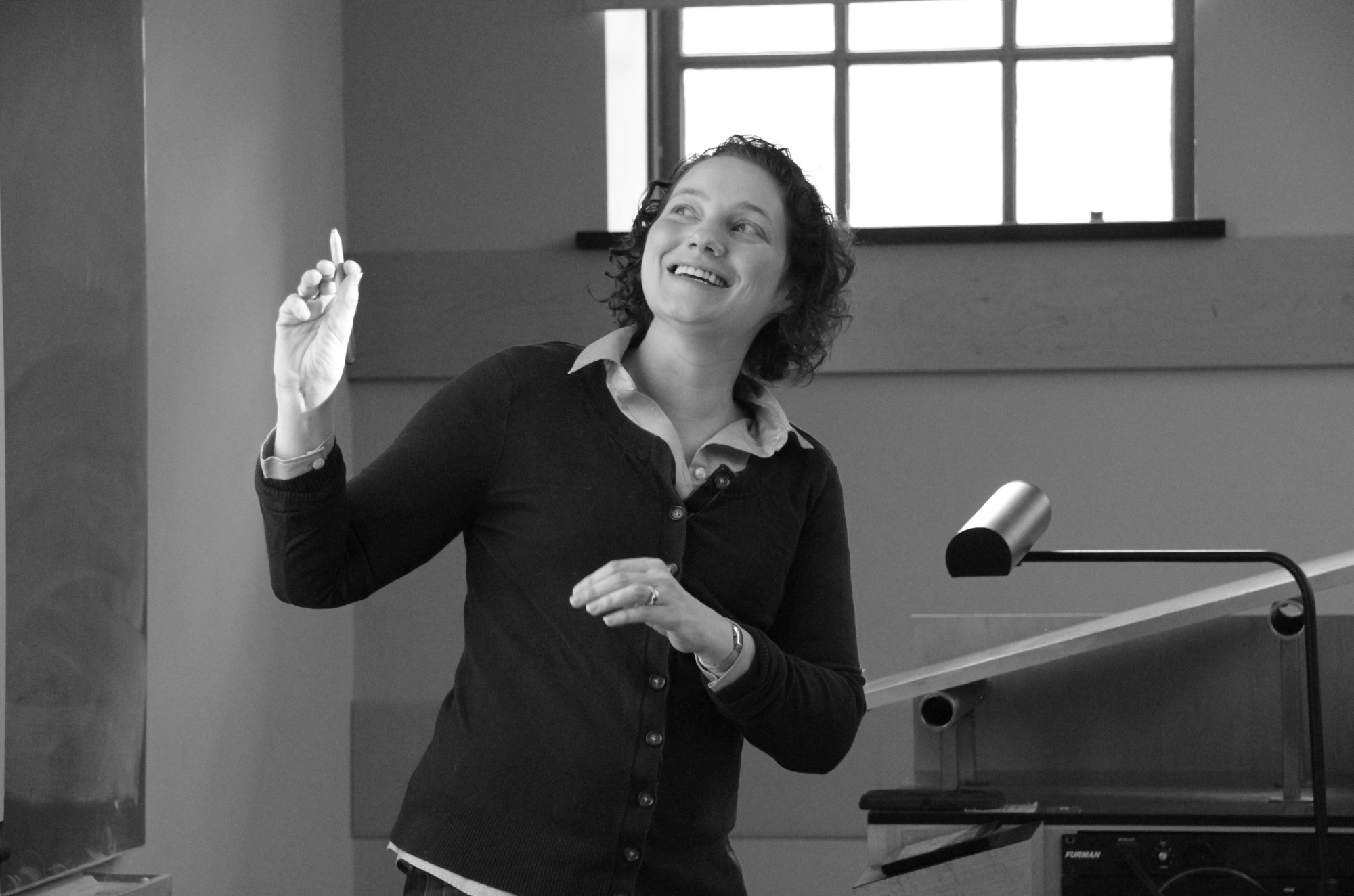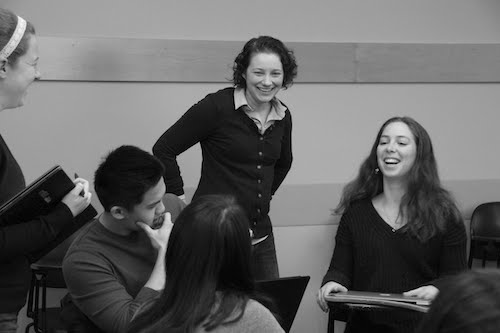 After a brief moment of meditation, Linden begins her course on the Neurobiology of Learning and Memory. Students are learning how an individual’s brain perceives and retains information.
After a brief moment of meditation, Linden begins her course on the Neurobiology of Learning and Memory. Students are learning how an individual’s brain perceives and retains information.
“Nothing in the brain is easy,” said Linden, who is affiliated with Brown’s Carney Institute for Brain Science, while explaining the convoluted nature of the brain pathways implicated in the formation of memories.
Educator of the year

In October 2019, Linden won the Carol Ann Paul Educator of the Year Award from the Faculty for Undergraduate Neuroscience. She was nominated for the award by a group of students who wrote a detailed letter acknowledging her work. The award recognizes notable efforts related to promoting effective teaching of neuroscience at the undergraduate level.
“She's focused on student experience,” said Colin MacFaddin ’21, a neuroscience concentrator who is currently taking Neurobiology of Learning and Memory. He said Linden always begins her classes with a moment of meditation.
Ratna Patel ’21 said Linden is accessible, friendly and approachable. “She's very well known in the (neuroscience) department,” said Patel, who is also enrolled in Neurobiology of Learning and Memory.
In Linden’s class, students scientifically examine a topic they are faced with everyday — their own learning process. “Several students will really try to apply what they're learning to changing their study habits ... in (the) context of other courses,” said Linden. “I really like that part of the class. I call it learning about learning, while learning about learning.”
Promoting diversity in science
Linden has been praised by faculty and students for her work to promote inclusion in her classroom, and to acknowledge inherent biases in the foundations of science. Each of her syllabi includes a diversity and inclusion statement, which has been shared across the University and the country.
“In an ideal world, science would be objective,” Linden wrote in her diversity and inclusion statement. “However, much of science is subjective and is historically built on a small subset of privileged voices.”
Linden said she worked with a former student to draft and develop the statement’s phrasing. “I try to get students involved in improving courses,” she said.
According to MacFaddin, Linden intentionally acknowledges that much of the foundational work in neuroscience was completed by white men who had the privilege to conduct scientific research. “She really makes a point to show what kind of researchers are being represented by the textbook,” said MacFaddin, adding that she highlights when women or people of color are represented.
This semester, Linden is also teaching a new seminar-style course — The Neurobiology of Love — which employs popular science writing and primary literature to make sense of the biological mechanisms underlying love. Students in the class study topics such as how researchers have examined the neuroscience of monogamy using voles as a model system. She said she developed the course after considering topics that would be especially interesting for students. The seminar model allows them to learn “about different experimental techniques and ... principles that carry across neuroscience in general,” she said.
A path to teaching neuroscience
Linden discovered the field of neuroscience during her freshman orientation at the Massachusetts Institute of Technology (MIT). She attended a lecture by John Horgan, author of “The End of Science,” who controversially argued that the brain was the last true scientific unknown, she said. Afterwards, she decided to pursue coursework in psychology and neuroscience.
Following graduation, Linden continued on to graduate school at MIT. At first, she was not as enthusiastic about teaching as she is now. She was required to lead a supplementary course discussion section, but she was introverted and “kind of terrified,” she said.
She worked alongside former Brown professor Mark Bear, then a new professor of neuroscience at MIT, as he developed an introductory neuroscience course for MIT. She became the lead teaching assistant for the course. It was thanks to that experience and Bear’s mentorship that Linden discovered a joy for teaching, she said.
Despite her initial fears, Linden said teaching runs in her blood. Her grandmother was a teacher and then a principal. Her cousin and aunt both work in special education, and her father taught adult education. “I was kind of in denial about, ‘maybe that's what I should do,’” she said.
Today, Linden is “seen as a teaching powerhouse,” said Patel after the Neurobiology of Learning and Memory lecture.